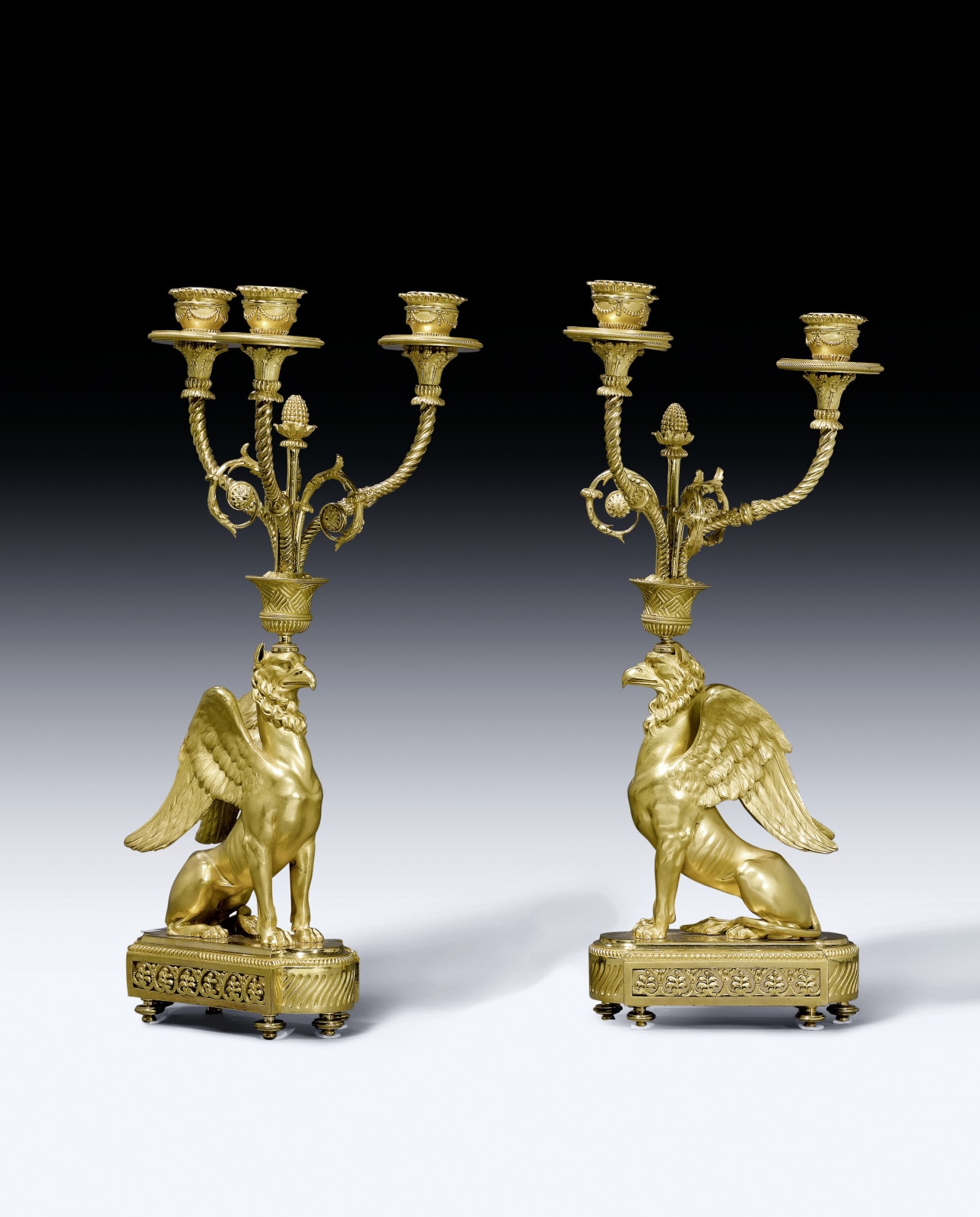François Rémond (attributed to)
A very fine pair of Empire gilt bronze three-light candelabra, known as 'candélabres au griffon' attributed to François Rémond each composed of a seated winged griffin supporting on its head a vase-shaped woven basket issuing a central pine-cone tipped finial above scrolls and three taller twisted candle branches issuing acanthus leaves with vase-shaped nozzles cast with beaded swags above circular drip-pans, the griffins on a rectangular base with rounded ends decorated with palmettes and striated motifs on four feet
Paris, date circa 1805
Height 46 cm, width 21 cm. each.
The model for these candelabra, known as 'candélabres au griffon' was created in 1782 by the celebrated bronzier François Rémond (1747-1812). A pair of that design was recorded in the register belonging to the marchand-mercier Dominique Daguerre dated 26thJanuary 1783 priced at 650 livres. Between January 1783 and December 1787, Rémond sold thirteen pairs (twelve of which were to Daguerre). In 1803 Rémond once more took up manufacture of the model but firstly made small modifications to the style of the nozzles and branches.
The present pair probably date to this slightly later period since they have twisted candle branches as opposed to channelled branches as seen on a pair from the Louis XVI period that were once in the collection of the Princess Kinsky. The latter candelabra were seized during the Revolution along with the rest of the goods belonging to the Hungarian aristocrat and are conserved today in the Musée du Château de Versailles in the Cabinet Intérieur du Petit Appartement de la Reine (documented in D. Meyer, "L'Ameublement des Petits Appartements de la Reine à Versailles sous Louis-Philippe", in "Antologia di Belli Arti", nos. 31-32, 1987, p. 38). The Louis XVI model was later copied during the nineteenth century by the bronzier Beurdeley.
A pair of identical candelabra was sold at the Palais Galliera, Paris 25th March 1977, lot 109.
François Rémond (1747-1812) was one of the leading Parisian fondeurs working during the latter years of the eighteenth and early years of the nineteenth centuries. His oeuvre included a number of similarly styled candelabra as well as clock cases. The son of a voiturier or carriage-maker, Rémond began an apprenticeship with the doreur Pierre-Antoine Vial in 1763 and eleven years later in 1774 was received as a maître-fondeur. His production was large and such that he built up a successful business. He worked extensively for the marchand-mercier Dominique Daguerre but also enjoyed patronage from members of the French court including Marie-Antoinette, the comte d'Artois, the duc de Penthièvre and the comte d'Adhémar.
He also worked in collaboration with the bronze caster Pierre Gouthière, helping him on some of his larger projects until Gouthière declared bankruptcy in 1788. Rémond also supplied mounts for various ébénistes, including David Roentgen and Jean-Henri Riesener as well bronze cases and mounts to the Parisian clockmakers.
